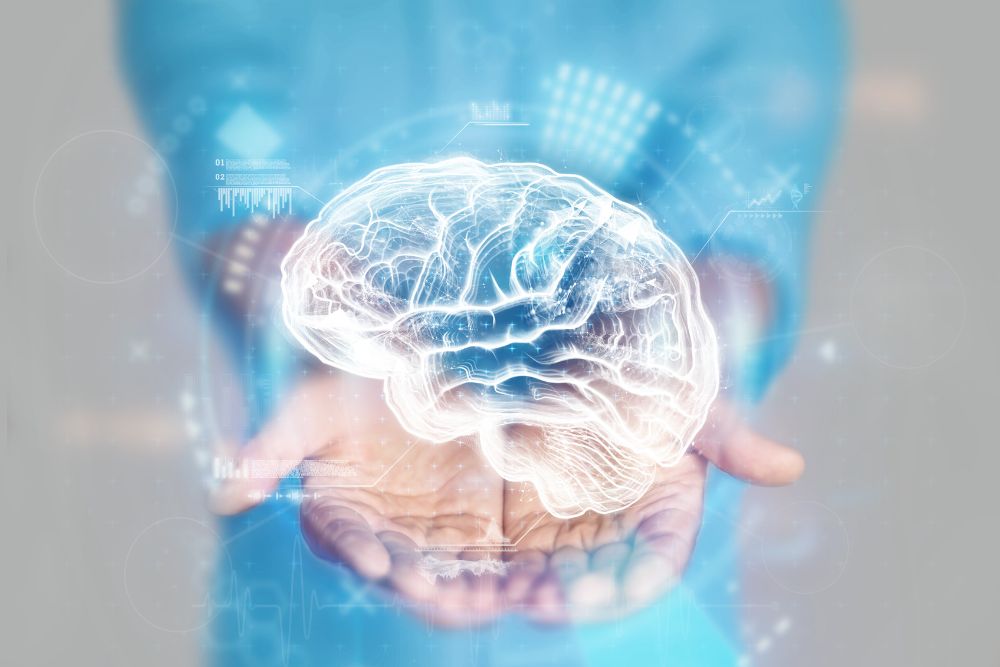
Prevent Brain Drain in Your Elder Years
Is memory decline inevitable or are there things that can be done? Brain drain is your elder years is a real fear in most cultures around the world. Especially since COVID, the topic of mental health has gained in popularity as people try to recover from and prevent future mental health conditions. These worries can be especially concerning with age. We now know one in ten adults over age 65 in the United States suffers from dementia while with an additional 22% suffering mild cognitive impairment. Of older adults over age 90, 35% have dementia. 60–70% of all dementia cases may be due to Alzheimer's disease, the most common form of dementia. With these statistics in mind, it's no wonder memory concerns are a hot topic for middle-aged and elderly adults.
Who Is Most At Risk
Generally, age is the most important factor. The older you are, the higher your risk of developing dementia or another form of cognitive decline. Those who have lower levels of education or are African American or Hispanic are also at a higher risk. Additionally, those with a family history of Alzheimer's or dementia are also at an increased risk. This is true regardless of gender. Men and women have similar rates of developing cognitive decline or impairment over time.
Lifestyle choices can also have a significant impact on the risk of developing memory problems. Smoking has a significant impact on mental decline, potentially because it increases the risk of cardiovascular disease. Heavy alcohol use also contributes, though moderate drinking doesn't seem to pose the same level of risk. High cholesterol, atherosclerosis, and diabetes also increase the risk of memory problems. Physical inactivity, social isolation, and being overweight or obese are additional factors putting people at risk of cognitive decline. Finally, high inflammatory markers in the body such as homocysteine level is a strong risk factor for Alzheimer's and vascular dementia.
Signs and Symptoms of Brain Drain
It's important to note that everyone presents memory loss and cognitive decline in different ways. Signs and symptoms depend on the person's mental status before becoming ill, underlying causes, and if there are any other health conditions present.
According to the World Health Organization, early signs and symptoms are:
- forgetting things or recent events
- losing or misplacing things
- getting lost when walking or driving
- being confused, even in familiar places
- losing track of time
- difficulties solving problems or making decisions
- problems following conversations or trouble finding words
- difficulties performing familiar tasks
- misjudging distances to objects visually
Common changes in mood and behavior include:
- feeling anxious, sad, or angry about memory loss
- personality changes
- inappropriate behavior
- withdrawal from work or social activities
- being less interested in other people's emotions
As time progresses, symptoms get worse. The affected person may not be able to recognize family members or friends, have a hard time moving around, or experience a loss of bladder/bowel control. They can also have trouble taking care of themselves, oftentimes including eating and drinking, and in some cases, they can develop aggressive behavior as well.
Conventional Treatment Options
In 2019, dementia cost 1.3 trillion US dollars globally with the majority of money spent due to caregivers. This mainly includes family members and close friends providing an average of five hours of care each day. With this in mind, therapies and treatments to help maintain memory and independent function are critical to overall public health.
First-line therapies for those with Alzheimer's dementia (AD) typically include cholinesterase inhibitors. This class of medications delays the breakdown of the neurotransmitter acetylcholine. Since acetylcholine is one of the first neurons and neurotransmitters affected in Alzheimer's, these medications can help reduce the damage early on. Additionally, these medications have been shown to slow down mental decline in mild to moderate AD. Another medication for moderate to severe AD is memantine which helps protect neurons from excitotoxicity.
Antidepressants can be used to help with any mood disorders which may occur. Some medications may also be used to help lower any agitation or anxiety which may arise. Other drugs are being developed to help deal with neurofibrillary tangles and beta-amyloid plaques which are thought to be a main cause of AD.
Overall, people suffering from dementia may stabilize, but the vast majority of them continue to decline over time. These folks rely on family members and friends to help care for them. In some cases, the affected person has to be placed in a full-time care facility with a memory unit.
Prevention with Natural Therapies
Again, lifestyle choices contribute significantly to the risk of developing memory loss and cognitive decline. Considering this, it's important to try and prevent your mental state from declining. One great way to help with this is to eat a whole foods diet with a rainbow of colors to make sure you are getting adequate nutrition. Exercising for thirty minutes at least three times a week is supportive of overall health and can lower disease risk factors that contribute to memory decline in addition to a healthy diet.
Eat Less Sugar. The World Health Organization in 2015 recommended sugar consumption should be twenty-five grams or less every day for the average adult. Modern diets across the world are often exceeding these amounts. Research has shown the more sugar older adults consume, the worse their memory is. Conversely, the same study found people with diets rich in vegetables and fruits had a better memory.
Fish Oil. Fish oil contains EPA/DHA, omega-3 fatty acids that can help improve overall health. In addition to being anti-inflammatory, EPA/DHA supports healthy cellular membranes. Research has shown adding one gram or more of fish oil a day can improve memory in older adults with mild memory problems. Dietarily, it's recommended to eat oily fish twice a week.
Green Tea (Camellia sinensis). Numerous studies have been done on green tea which have all shown it supports a healthy brain. Green tea contains L-theanine and caffeine as well as other constituents that work together synergistically. Consuming green tea has been shown to improve memory and attention and can even support a healthier mood. It also lowers the risk of developing neurodegenerative diseases, and it appears to lower beta-amyloid plaques. These plaques are a primary contributor to developing Alzheimer's disease. This can be taken as a supplement or by drinking it as a tea at least a few or more times a week.
Mental Exercises. Don't forget the importance of exercising your brain! Research has shown doing games, puzzles, and other activities helps strengthen neural connections. One study found doing 15 minutes of varied online memory exercises had more benefit than just doing crossword puzzles for the same amount of time each day. Not only is it important to exercise your brain, but your brain benefits from variety too. If you already include mental exercise in your daily habits be sure to try different exercises to get the most out of your time.
Adequate Sleep. It's been said sleep is important to health, but adults are recommended to get seven or more hours of sleep nightly. Less than seven hours has been associated with impaired performance and increased errors. It also raises the risk of diseases such as diabetes and heart disease which directly increase the risk of memory dysfunction.
To Sum It Up
Most importantly remember living a healthy lifestyle can help prevent brain drain. Work to manage your stress, get your body moving a little bit every day and eat a whole foods-based diet. Be sure to get at least 7-9 hours of sleep every night, and drink water throughout the day. Last but not least, make sure to get out and socialize in person with your friends and family. These basic healthy lifestyle practices can have a greater impact than any supplement. For more personalized recommendations, reach out to your local holistic health practitioner. Dr. Amanda Blandford offers a Discovery Visit (15 minutes) to learn more about what your natural health options might be!
Resources:
- Chong, C P et al. 1019. "Habitual Sugar Intake and Cognitive Impairment Among Multi-ethnic Malaysian Older Adults." Clinical Interventions in Aging, 14; 1331-1342. doi:10.2147/CIA.S211534
- Hardy, Joseph L et al. 2015. "Enhancing Cognitive Abilities with Comprehensive Training: A Large, Online, Randomized, Active-Controlled Trial." PloS one, 10(9); e0134467. doi:10.1371/journal.pone.0134467
- Kan, Zhipeng et al. 2021. "Green Tea Suppresses Amyloid β Levels and Alleviates Cognitive Impairment by Inhibiting APP Cleavage and Preventing Neurotoxicity in 5XFAD Mice." Molecular Nutrition & Food Research, 65(19); e2100626. doi:10.1002/mnfr.202100626
- Liu, Y et al. 2018. "The Effects of Green Tea Extract on Working Memory in Healthy Women." The Journal of Nutrition, Health & Aging, 22(3); 446-450. doi:10.1007/s12603-017-0962-8
- Mancini, Edele et al. 2017. "Green Tea Effects on Cognition, Mood and Human Brain Function: A Systematic Review." Phytomedicine: International Journal of Phytotherapy and Phytopharmacology, 34; 26-37. doi:10.1016/j.phymed.2017.07.008
- "One in 10 Older Americans Has Dementia." N.D. Columbia University Irving Medical Center. Revised Oct. 24, 2022. https://www.cuimc.columbia.edu/news/one-10-older-americans-has-dementia
- Stanford Medicine Health Care. N.D. "Dementia Risk Factors." Retrieved July 29, 2023. https://stanfordhealthcare.org/medical-conditions/brain-and-nerves/dementia/risk-factors.html
- Yiannopoulou, Konstantina G, and Sokratis G Papageorgiou. 2013. "Current and Future Treatments for Alzheimer's Disease." Therapeutic Advances in Neurological Disorders, 6(1); 19-33. doi:10.1177/1756285612461679
- Yurko-Mauro, Karin et al. 2015. "Docosahexaenoic Acid and Adult Memory: A Systematic Review and Meta-analysis." PloS one, 10(3); e0120391. doi:10.1371/journal.pone.0120391
- Watson, Nathaniel F et al. 2015. "Recommended Amount of Sleep for a Healthy Adult: A Joint Consensus Statement of the American Academy of Sleep Medicine and Sleep Research Society." Sleep, 38(6); 843-4. doi:10.5665/sleep.4716
- World Health Organization. "Dementia." N.D. Revised Mar. 15, 2023. https://www.who.int/news-room/fact-sheets/detail/dementia
Image Attribute: kasandrphoto/freepik.com

Leave a Comment
(0 Comments)